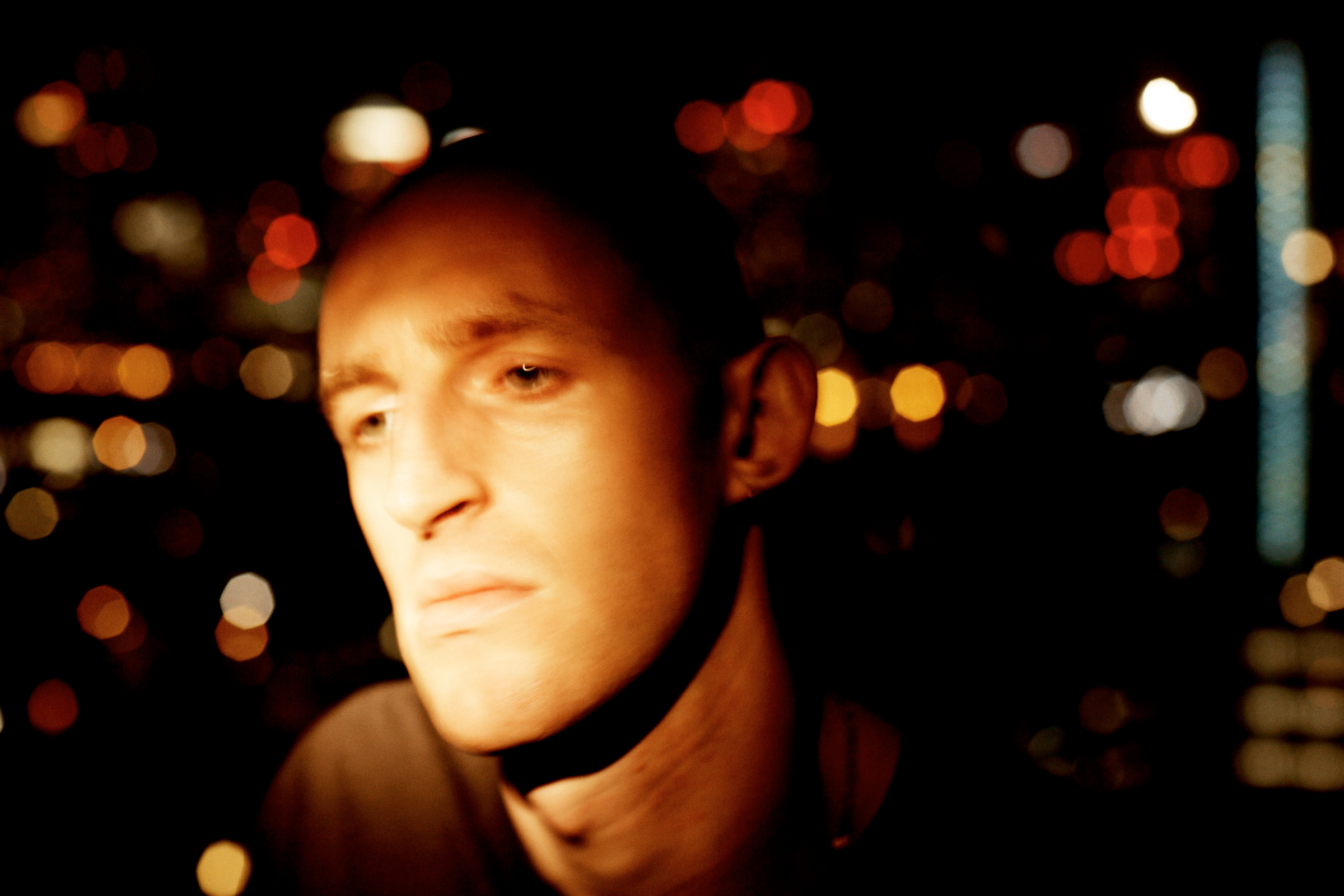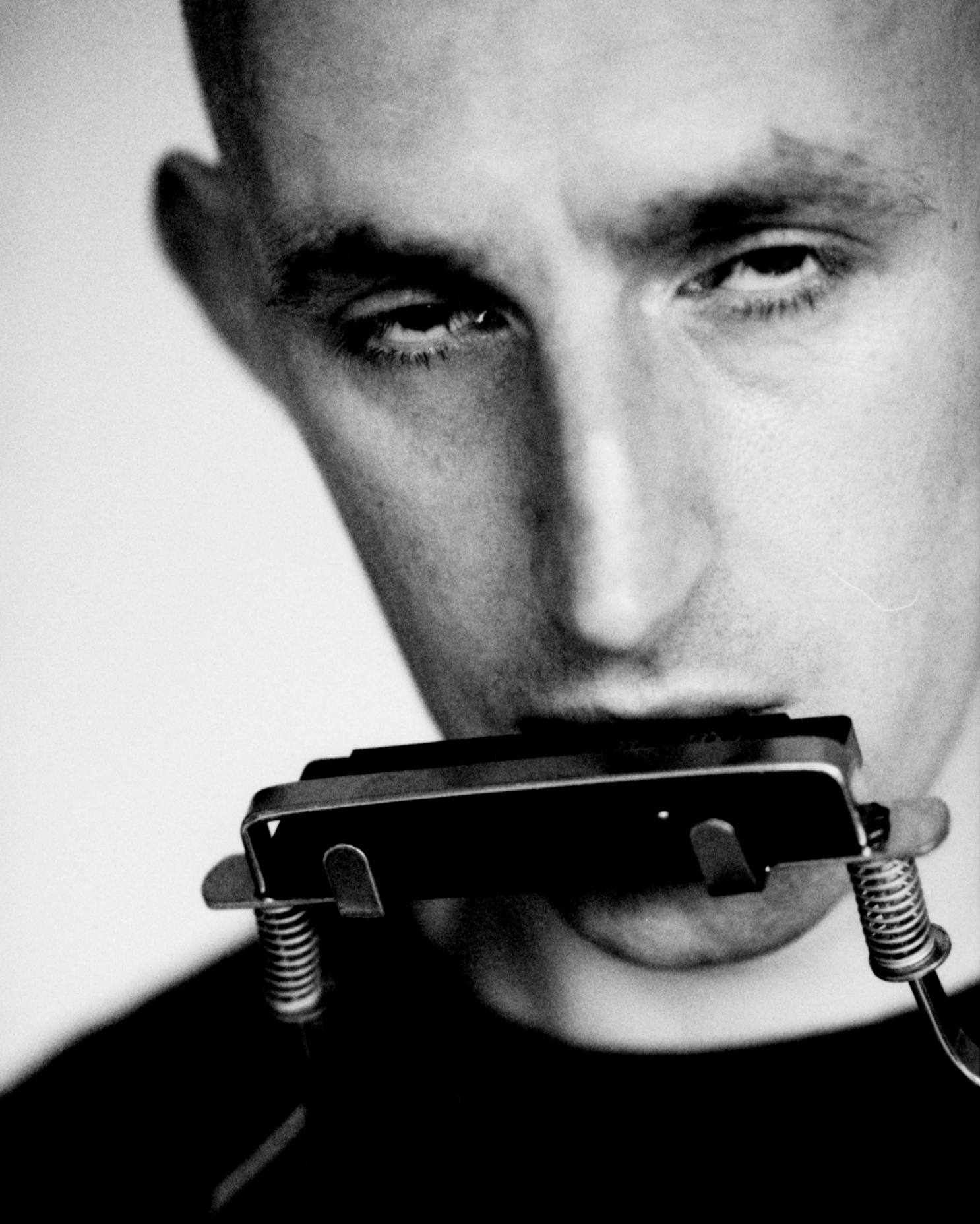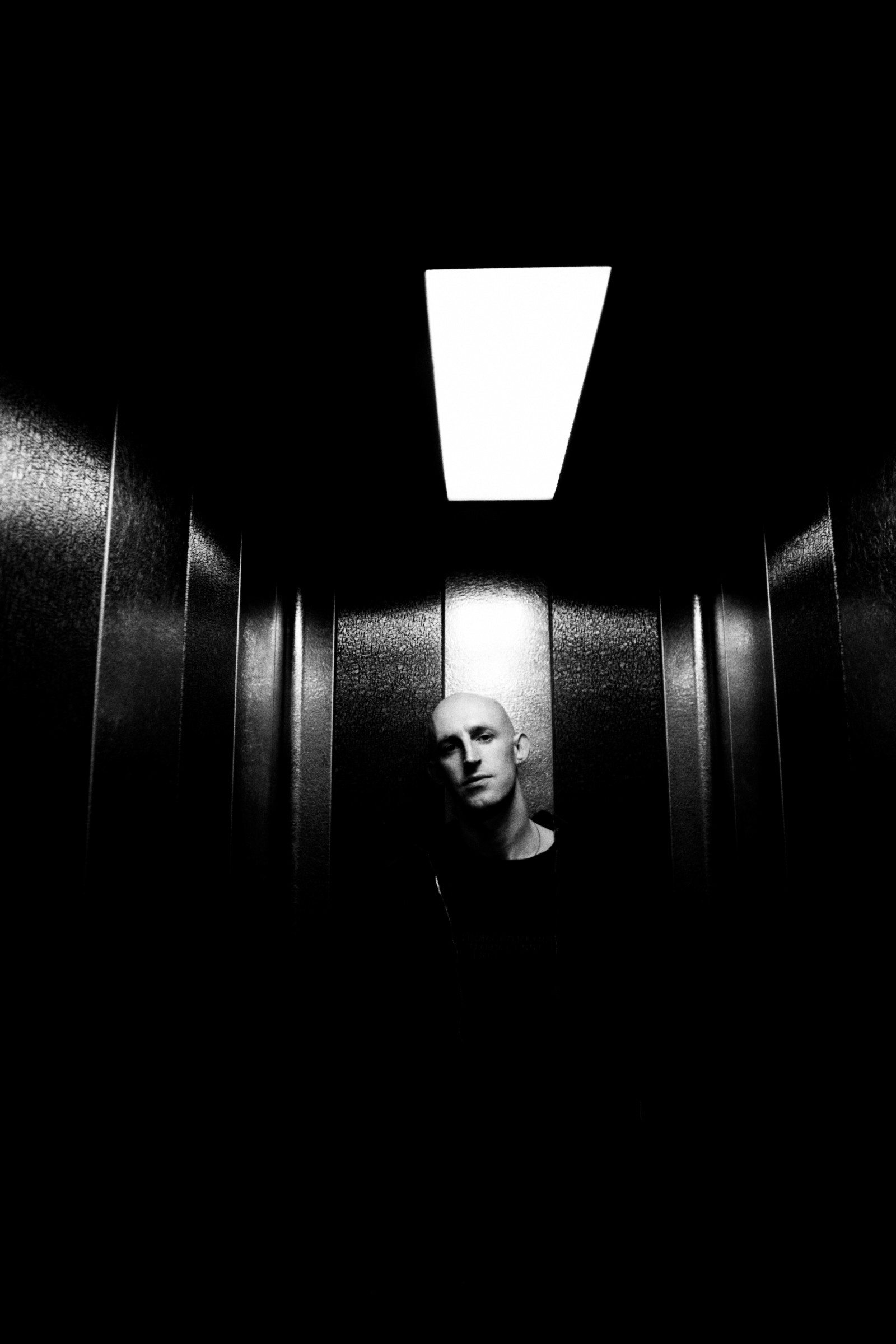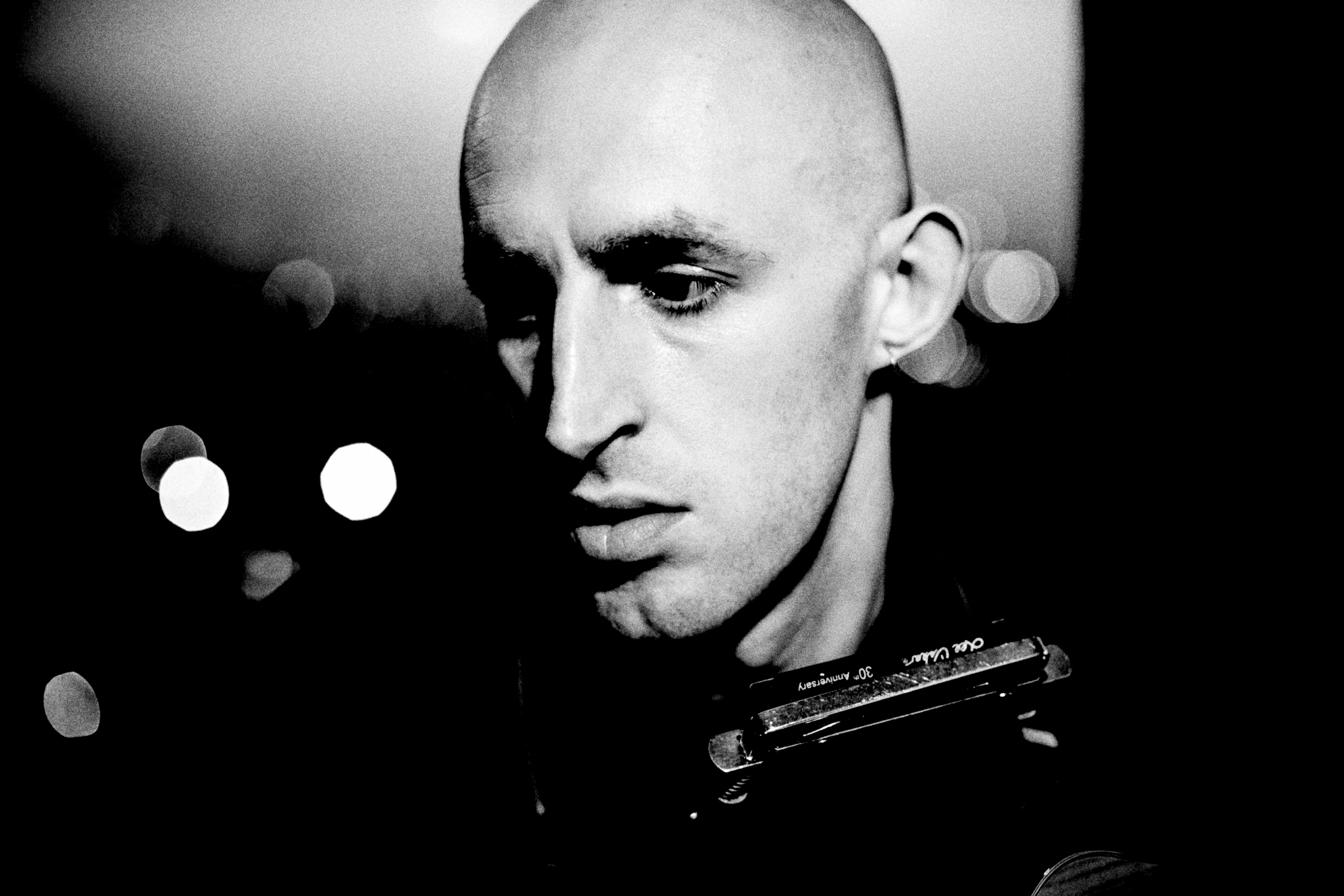F L A U N T


Crawling from the depths of London’s underground emerges mark william lewis. lewis has remained characteristically sparse in the press, and even in his oeuvre itself, but it is this south-of-the river ennui and grey-skied sound that has thrust him to the spotlight as A24 Music’s first signee. Today, the artist releases his sophomore album, Mark William Lewis, and the September album release is apropos. As the sun sets earlier, the temperature begins to drop, and as the city of London itself obeys these conditions, so too does the pathetic fallacy of its people. Mark William Lewis is ready to meet them there—providing surreal windows within the grounded urbanite stories and the space between. Taking us through one impressionistic image after another on “Tomorrow Is Perfect,” or building an incomplete but detailed portrait of a tragic figure on “Seventeen,” Mark William Lewis has an unflinching look into the places we find ourselves in again and again, burrowing into the subconscious.
Although he’s been associated with the likes of MIKE (the current people’s hero of New York hip hop) and South London indie rockers bar italia, he’s always been tinkering away on his own merits, from working on projects in his childhood to officially coming out with self released EPs and albums such as 2022’s Pleasure is Everything and 2023’s Living, building his sound that aims to invite with its singularity.
I met mark on a cloudy late August day at London’s ICA to chat over some flat white coffees about his approach to music, songwriting and how that’s been affected by his creative relationships and his environment.
Let’s talk about “Seventeen,” a song [that makes one feel like they're] so close to a person, because you give quite specific details, but [yet also] so far….
One thing I want to say in general: I find it weird with the album—or like, new and slightly difficult with the album rollout—is talking about stuff. Because in all my previous releases, I just put it out, [and haven’t] done any interviews and not said anything about it. But I have quite a lot of distance now from some of the stuff I do. And it's only with like, a year or so distance that I'm able to kind of understand what I was doing.
But I think, with “Seventeen,” the reason it feels like that is because it's kind of an impression of various people and moments, really, it's not one. There are specific people I have in my head when I'm writing, but it ends up being like a collage of those people and myself, right? I like things that feel really specific, but also really relatable, and I find that an interesting grey area.

I remember one time I listened to Bob Dylan, “Blonde on Blonde” on a night bus home from a motive. That was a crazy experience, and your album really falls into that [atmospheric experience]. How does environment and, maybe, London itself, affect your work?
I'm one of those people that don't really like clubs or partying that much. I like going to the pub or whatever, or maybe a house party. But for me, the musicality on the journey home is always much more inspiring than the music here in the club. You know? So it's not surprising to me that it feels more like that. It's similar to a relationship, I guess. You could have six months of pure bliss, but for some reason, the bit at the end ends up being the bit you write about.
Yeah, because there are so many complexities.
It's more raw and you're more vulnerable, there's more complexity, more tension, more edge. I think that there's something unexplored for me about pure bliss or happiness or because I do experience those things on occasion. “Petals” is the one song that feels a bit more like that.
You talked a little bit earlier about you learning instruments in your childhood. I know about your past being bar italia’s drummer or a part of MIKE’s Tiny Desk on guitar—how does your work being part of bands and submitting to someone else's vision of music help you on your own journey?
That’s a good question. I want to set the record straight: I was always doing my solo thing, first and foremost. I mean, I've had experiences of playing in people's bands, but 99% of the time has been about me and my thing. But then something like the Tiny Desk, it was really cool in the midst of this album campaign, it's “Me, me, me, me, me,” but then getting thrown into someone else's musical vision, and having to think that way was unbelievably refreshing for me and really helped reset ways of thinking about music and stuff like that.
Especially as it was really challenging musically for me. Working with jazz musicians and, stuff like that, it was a totally new thing.

In another interview, you talked about James Joyce and Allen Ginsberg, how they have like this magical realism to their work. How do you find that in your every day, and does it translate to music at all?
My upbringing and my surroundings is London. I find that the way this kind of particular urban environment is presented isn't often the way I see it. I find that there's a lot of mystery and magic to be found. And there's a lot of nature here. I mean, even just the album cover—that's the spot where I go a lot to clear my head and skip stones into the river. That sculpture that's there—that scene, that river, that beach, and then those buildings in the background…that to me is a much more interesting representation of or like it's much more magical representation of London than what you often see, which is the surface of the busy-ness of it, or whatever.
I don't know. It's hard to explain. I find these little pockets of where I am, and that's where I can really daydream, and that's what I liked doing as a kid, as a person and as an artist, which is daydreaming about different worlds. That's kind of what I like about magical realism, it's grounded in realism, but it leaves the opportunity open for magical things to happen and there are those perspectives in any part of the world. I just think you have to keep that space for your imagination, and that's a very, very sacred thing.
In the songs, like “Tomorrow's Perfect,” [each has] its own rules in its horizons and world. That's what I really like about that song, it feels like a kind of magical place in my imagination that I managed to turn into something.
How did you find your connection with your co-producer, Jamie [Neville]? I'm guessing you guys must have a pretty close connection because you're both credited in producing all 12 tracks
Yeah, and everything I've put out, most of it. I've known him for years and years. We actually met because our ex-girlfriends are sisters! We had a studio together in Bermondsey from like [around] 2017. I think he was probably always more interested in the production and the engineering. I was also interested in production, but I was writing a lot and figuring my stuff out, and we’re still learning together. We were renting a room together and bringing our stuff there, and then he built his own studio, then it was just natural for me to go and record there.
The process is: I'll start something at home, and then I'll do the drums with him, because I can't do that at home, and he's also really good at drum sounds. Then we'll just spend a day throwing ideas at what I've got. It just feels natural, and for me, it was always about [working with] someone I was just comfortable with, someone I was friends with, and I knew, but he's also really talented. What I like in life with my music stuff, and even the people I work with on the team side, I like that feeling of learning together, and I feel like I even have that relationship at times with my manager, with my band as well. We're learning together and teaching each other.

From our talk here, your working relationships seem well solidified. Do you find the idea of the “lone wolf” artist kind of overrated? Especially as that’s how you might be perceived from the outside?
No. I mean, like, in life, maybe it's overrated. Yeah, I want to have relationships and friends, all the rest of it. But in our work, I do think it's quite important to just be like: “This is my vision, fuck off everyone.”
I mean, there's a reason why Elliot Smith, and the eight track recorder is like, revered, because he was just making all this shit straight out in his brain.
100%. There's a John Frusciante album called Niandra LaDes and Usually Just a T-Shirt that I found when I was really young. And it has that quality, that Roman Candle quality that Elliot [Smith] or Daniel Johnston had where people were like, “No one else has touched this. No one else has probably even heard this,” and I don't think that's overrated, I think that's really important. I've always loved that.
[Like, for example] nine producers.
I mean, that can make amazing music. Don't get me wrong, but I find the other thing way more inspiring. That's just who I am. I find music inspiring when it feels like, “Oh, I could go and do that.” That's legitimate, you know?
I think maybe at some point I'll do the other thing as well, so we'll see. But my default—my ethos, creatively, is that it's always better for one person to be, for better or worse, living and dying by their vision, how they see it, what they want to do.
No one I work with, apart from Jamie, will ever, ever really mess with my music, how it sounds, and that's one condition I would always have working with a label—don't fucking say anything about the actual music. You can have an idea about what the cover is, but if you tell me something about the music that I should change. I'm not working with you anymore. Seriously, because that’s just contamination to me.